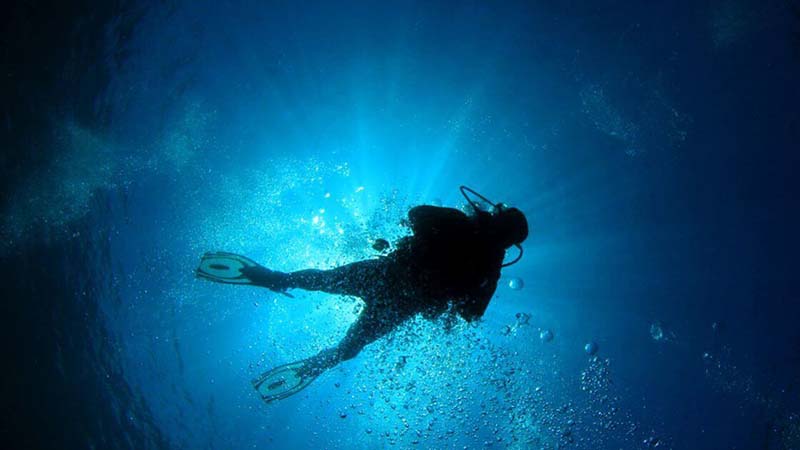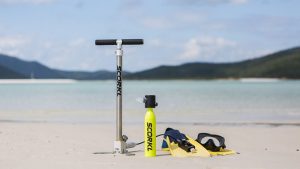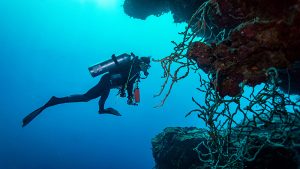It is undeniable that every newly certified diver is excited about exploring the underwater world. And this is where the most common diving mistakes start occurring.
These mistakes endanger one’s diving safety. Thankfully, they are not too bad. You can have a lot of fun under the water if you know what mistakes to avoid.
The excitement is coupled up with desire to advance their diving skills and the general execution of the adventure. This is okay, since you want to test all the skill and knowledge that you acquired in your PADI or NAUI certification.
This is understandable because the thrill and the fun that comes with scuba diving is quite something to look forward to.
However, new divers make several mistakes as they get started diving. These mistakes cause them embarrassment, frustration or even costly financial repairs and replacements for their scuba diving gear.
Worse still, these mistakes can easily end up endangering their scuba safety and that of the underwater world.
Table of Contents
The Most Common Diving Mistakes
Diving above your current training level
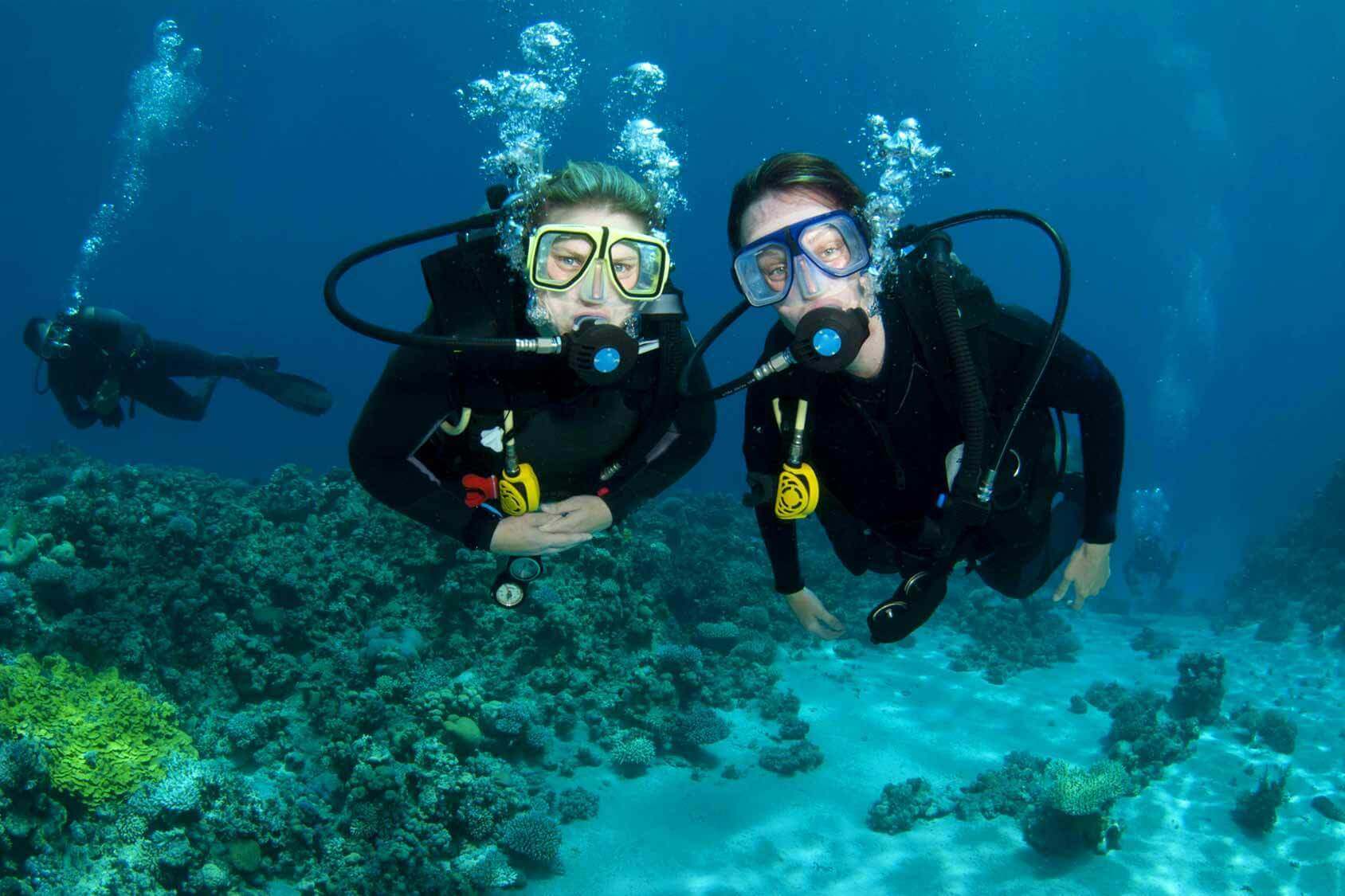
Out of excitement, some newbie divers are often tempted to dive beyond their current experience diving level or training limit. This mostly happens when they are diving in the company of more experienced divers.
They think that since they are diving alongside a more advanced diver, they will be okay but this is a big mistake.
By doing this, a diver will be risking his/her diving safety because he is not well prepared for the conditions beyond their experience.
As a newbie diver, never attempt diving in wrecks, caves or at night before getting the proper training and equipment. If you do that, you will be risking your life.
Deaths of divers who attempted to dive in shipwrecks and caverns without proper experience are reported often around the globe.
What to do
Always gain some additional training before trying out new challenges that are beyond your current experience.
Trying to keep up with the pros
One of the common diving mistakes that new divers make is rushing to keep up with more advanced divers.
If you are a novice diver, never rush to keep up with a pro whether you are inside or outside the water.
Always take ample time to prepare to get into the water. Prepare and assemble all of your gear and weigh your scuba weights without any rush.
Ensure that you are comfortable in your gear. Go down slowly without trying to keep up with the experienced divers.
Being in a rush to keep up with them can be very dangerous as you risk losing your control and composure under water. Accidents occur easily if a diver loses control; hence keep calm and descend slowly.
The main thing here is that you are in this for fun. You want to enjoy yourself, the weightless feeling in the water is very comforting. There is no need to rush. This is a fun, recreational dive. It is not an emergency dive!
Failing to invest in proper personal gear for scuba diving
Investing in your own personal gear is extremely important. Your personal scuba equipment and gear will fit you better and you will be more familiar with it.
With a better understanding of your gear, you will know where everything is in case of an emergency. This may not be the same case with rented gear.
First, the gear might not fit you well. Second, you might not be sure of what to do with the equipment in case of emergency.
It is better to buy your own gear for diving. That way, you can dive all the time you want. You can also learn how to take care of your scuba gear and equipment.
What to do
Buy whatever gear you can. You can rent the costly ones depending on your diving frequency. One of the best places to buy diving gear is Amazon.com for more variety and better prices. Click here to see some of the gear that you can buy.
Disregarding crucial diving rules
Some new divers make a mistake of ignoring important diving rules and guidelines simply because they have attained a diving certification.
Some of the common diving mistakes in regard to this are solo diving, ignoring the time and depth limits. Others include improper planning of the dives, diving far from their buddies, diving in unfamiliar environments and so on.
Ignoring the basics of scuba diving rules may have catastrophic repercussions on your diving safety. This is especially true if things go wrong while underwater.
To avoid this, always ensure that you follow all the diving rules to the letter. Don’t think that investing in more training or knowledge in diving is a waste of time or money.
Keep on refreshing your diving skills especially when you have taken some time before diving.
Not diving more often
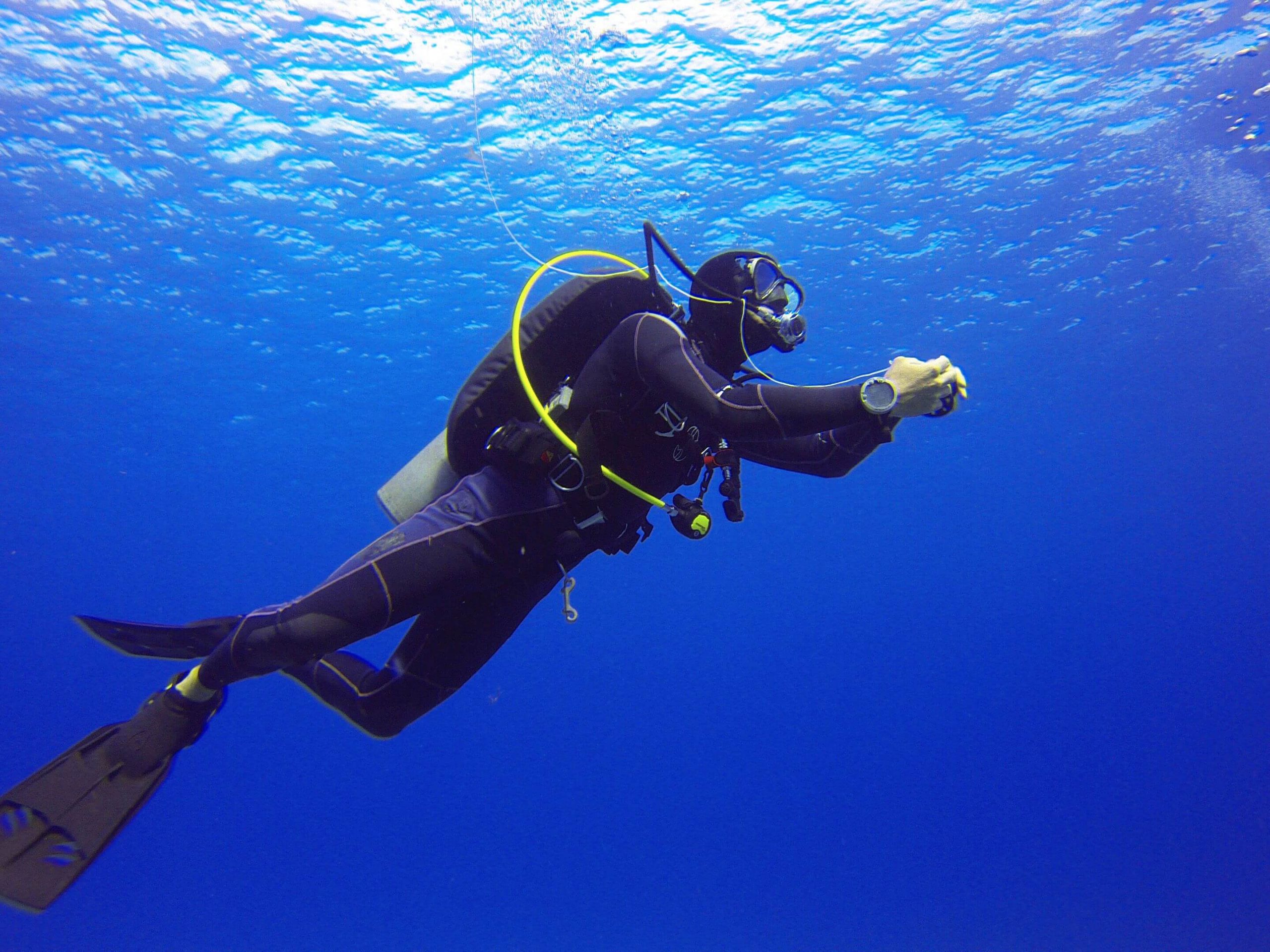
The next big mistake that new divers make after acquiring a diving certificate is taking a while before diving again.
Failing to dive enough will definitely make a diver lose touch with the skills they have already acquired.
The best thing after becoming a certified diver would be becoming a member of a certain dive club. If joining a dive club is not possible, at least try to dive more often; probably during your holidays.
You may also consider keeping up with your training agency’s diving theory from their website.
What to do
You can never become too good at diving. You can never be assured of 100 percent diving safety no matter what your skill is. This is why you must keep on diving every so often.
Not asking diving questions – one of the common diving mistakes
Never hold back from asking a question when you have one. All of the experts that you see were once beginner divers and some of them have gained their experience through asking questions.
Never feel embarrassed to ask questions or get clarification on something that you are not sure about. In addition, never feel intimidated by the experience of the other divers to a point of not speaking up where you need guidance.
There is totally no shame in getting some clarification on something. Feel free to request for a change of your gear in case something is wrong with it.
Despite diving being a fun filled adventure, it has a potential of putting your life at risk. Ensure that you do not have any doubts on what might look like basic information.
What to do
Do not refrain from asking questions. This applies even when you have joined a scuba diving forum online. The good thing is that there is always someone with more skill to answer your questions.
Not planning sufficiently for the dive
Proper planning is very important before every dive. Get all the information that you need in advance about the dive site that you intend to visit.
Look for as much information about the site’s depth, currents, entry and exit points and its marine life.
Before the dive, communicate with your dive buddy to ensure that you are in agreement with the plan.
Also, consider sharing your dive itinerary with another person who will not be going with you on the trip. Sufficient planning beforehand can help prevent or manage any incidents.
What to do
If you are planning off a boat, maybe a pontoon boat, you can always leave one person on the boat. That way, there is always someone looking out for you.
Inflating and deflating your BCD repeatedly
Among the things that you will learn in your diving course is how to inflate and deflate your BCD for buoyancy purposes.
Another of the most common diving mistakes that new divers make and can endanger their diving safety is repeatedly inflating and deflating their BCD while underwater. To avoid this mistake, a diver should always check whether they have achieved neutral buoyancy at the start of their dive.
Also, never assume that the weight, which achieved neutral buoyancy in your last dive will still be the same for subsequent dives.
Your buoyancy can be affected by several changes such as body weight gain or loss, water salinity and the thickness of your wetsuit.
What to do
Therefore, check for neutral buoyancy and make the necessary adjustments every time before going underwater.
Ascending to the surface too rapidly
This is another of the common diving mistakes that newbie divers make. It compromises your diving safety and it has the potential of causing serious consequences once it happens.
When you ascend too quickly, you make it very difficult for yourself to slow down and control your movement.
Even when you panic while underwater, try as much as possible to make a slow ascent to the surface. The recommended rate of ascent is usually 18 meters per minute, or even slower.
Shooting rapidly to the surface can cause a major problem known as decompression illness (DCI).
DCI can make a diver’s lungs to over-expand causing them to develop serious injuries or worse rapture, which is fatal.
In addition, decompression sickness can force nitrogen from the diver’s tissues, which forms tiny air bubbles in those tissues.
What to do
Control your ascent. Make it less than 18 meters per minute.
Lack of proper dive gear maintenance
Your dive gear is equivalent to your life support apparatus while you are underwater. Therefore, ensure that they are in good condition and functioning as they should.
Always remember that every time you dive, you are not only venturing in a thrilling environment but also a somewhat dangerous world. Therefore, always ensure that your dive gear is well maintained and properly functioning.
After each dive, rinse your gear thoroughly and allow them to dry before storing in a cool and well ventilated place.
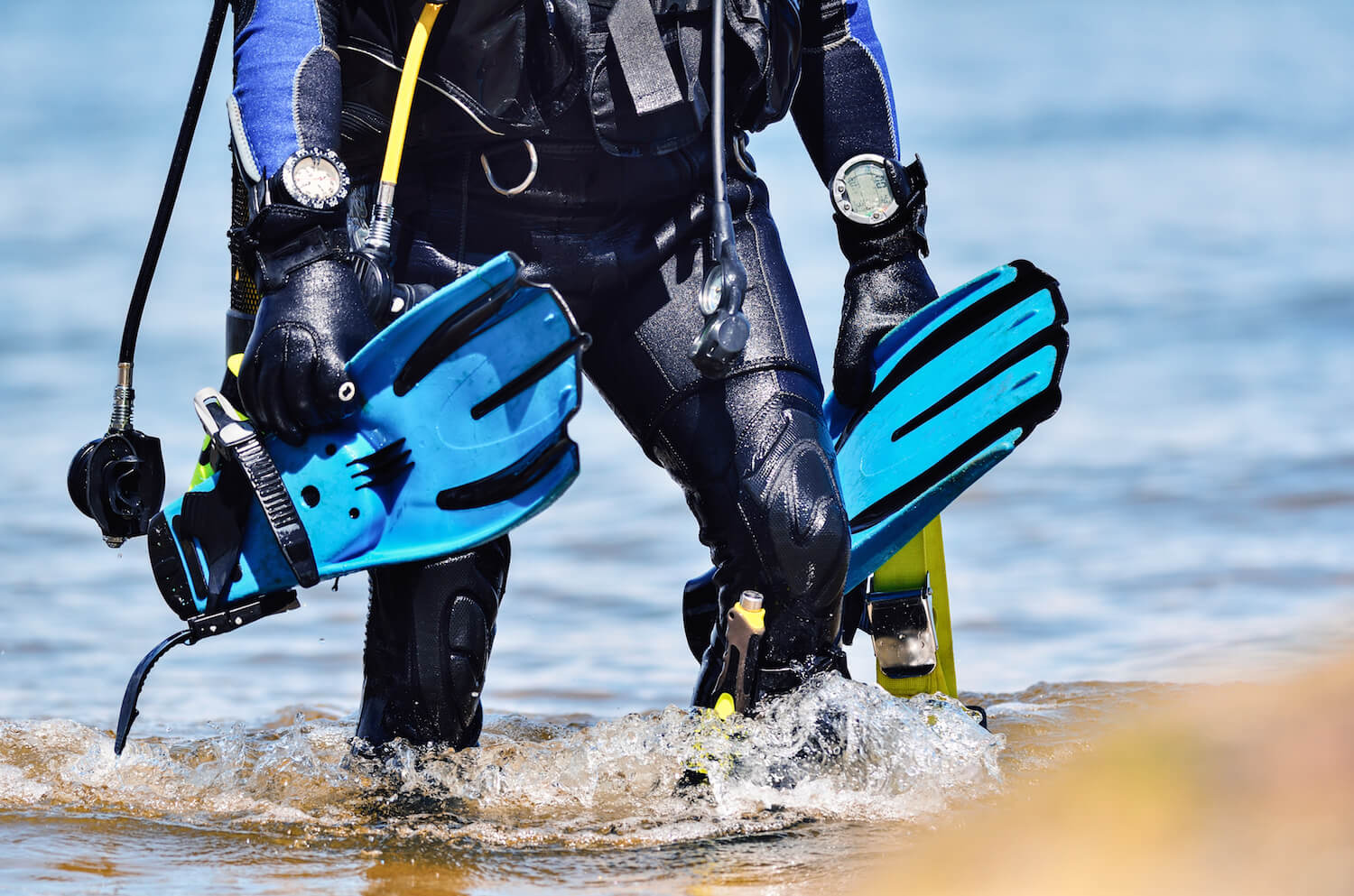
What to do
Before putting your gear on, always look out for signs of cracking, leaks or wear and tear, while paying more attention to the regulator. Your diving safety starts with you.
Not tracking your air consumption
Ignoring your air consumption as a diver can be very risky to your diving safety. The reason is that air is the most important thing to any diver while they are in the underwater world.
As a new diver, always track your air consumption closely to know how much air you are remained with.
You have no excuse at all for not watching your air all times. Remember that your pressure gauge won’t alert you that you are about to run out of air; it is your work to keep on monitoring the consumption.
What to do
After every dive, draw a chart of your air consumption for future reference while diving in similar environments. With a chart, it becomes easier for you to estimate the amount of air you will need for your dive.
Teasing or harassing underwater marine life
New divers always make the mistake of teasing or harassing the marine creatures they come across.
This is probably out of the excitement to explore the underwater world. Firstly, the damage caused to the marine life has a destructive effect on the ecosystem. Secondly, some of the creatures might fight back when you tease or harass them putting your diving safety at risk.
As a diver, you should never use your gear to harm the underwater environment. Do not go kicking scuba diving your fins carelessly. You end up destroying the delicate coral reef. In addition, refrain from touching the creatures as some of them may interpret it as harassment and end up striking back.
Diving when you are feeling unwell
Diving while you are unhealthy or feeling sick is very risky. This would be one of the most common diving mistakes not only for new drivers, but also for the experienced ones.
It can lead to serious health consequences or worse, death, as it interferes with your balance. Apart from diving while sick, never attempt diving while still under the influence of alcohol. Alcohol can easily make you dehydrated, which in turn can trigger decompression sickness.
It is therefore highly recommended that you skip your dive if you feel sick. Consider postponing your dive for more days in order to give yourself more recovery days in case you have been unwell.
In addition, prior to your dive, consider visiting a professional medic who will assess whether you are healthy and fit enough to dive.
Relying on your diving guide too much
While having a guide around is good for a new diver, solely relying on him can possibly endanger your diving safety. This is because some of the novice divers will put all their trust in the guide to a point of them not being attentive to important details.
Some divers will neglect crucial details of their diving environment, ignoring important dive briefings such as the depth limits.
Others think that since they have a guide, they will be absolutely fine, forgetting that every diver is responsible for their own diving safety. While I am not in any way suggesting that you should not trust your guide, do not solely depend on him for your safety.
Always be attentive during the dive briefings. Take note of the important details about the dive site such as the currents, bottom times, entry and exit points and the marine life.
Neglecting to do a diving safety check prior to the dive
Forgetting or omitting to conduct a pre-dive safety check is a common mistake that new divers make. This is one of the easiest things that a diver can do to prevent possible diving incidents.
If you are not familiar on the pre-dive checks that you should always conduct, it is not hard.
Crucial diving safety checks to avoid common diving mistakes
Conduct both oral and manual inflation and deflation of your BCD. Make sure that all the valves are functioning properly and that the low pressure inflator is secure.
Next, check whether all the weights are attached securely in their proper position. In addition, ensure that no belt is twisted.
The other check should be on the releases. Make sure that all the releases are fastened securely. Check the tank band, the snap connectors, the quick-release connectors and familiarize yourself with their functions.
Next, conduct a pre-dive check on your air. Always ensure that the tank is full and that the air smells and tastes fine. In addition, check whether the regulator valve is opening fully.
Finally, do a quick check on the masks, snorkel and the fins. Make sure that all the hoses have no leaks and are not twisted. Also check whether the BCD is properly inflated and ready for the dive.
All of the above checks are simple and they take less than five minutes. Check on your dive buddy’s gear before you can both enter into the water. This is important because it makes you familiar with the configuration of their gear, hence you will know how to handle them if need be.
Conclusion
You have seen the most common diving mistakes that most beginners make. The good thing is that now going forward, you will not be making such anymore. When you are well-prepared, scuba diving and indeed other water sports can be a lot of fun. Your scuba diving safety relies on you.

